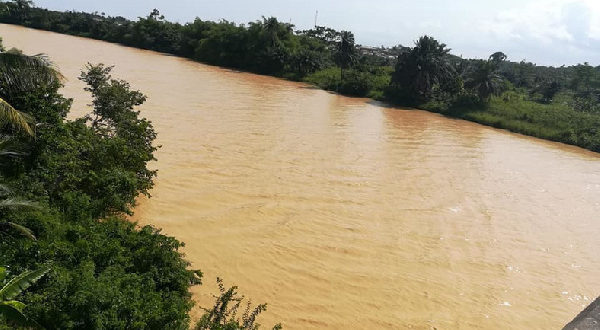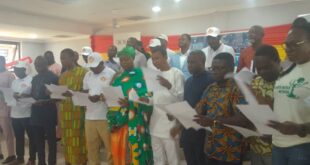The Water Research Institute of the Council for Scientific and Industrial Research (CSIR- WRI) together with a consortium of nine partners have inaugurated a climate resilience project called “Building Climate Resilience into Basin Water Management” (CREAM) in the Pra and Densu River Basins in Ghana.
The project which is expected to last for five years is being funded by the Ministry of Foreign Affairs of Denmark is aimed at creating a knowledge and capacity base for integrating climate change.
It also aims at creating shared socioeconomic pathways, land use and other future development scenarios into river basin management to enhance climate resilience, water- food- energy security and environmental conservation.
In an interview with Citi News after the project inception meeting with stakeholders in Koforidua, Dr Emmanuel Obuobie a Senior Research Scientist at CSIR-WRI said the current environmental degradation should be a concern for all.
“The CREAM project is meant to enhance the resilience of management of the two river basins we are working on that is the Pra and Densu. Currently, the manner in which the basin and it’s resources are being utilised is not sustainable and coupled with expected changes in climate and future development, it is going to be more terrible if we do not find a better way of managing it”.
“So this project is set out to provide the evidence for the impact of climate change and socio-economic development on the basin and to recommend solutions for dealing with it”.
Dr Emmanuel Obuobie added that, “Currently we have all kinds of unsustainable activities ongoing in and around the basins like deforestation, land-use changes by way of illegal mining activities within the river basins. There are people fishing using unapproved methods, pollutions into the river, dumping of refuse and all these have negative impact s on the basins and environment as a whole”.
Dr Obuobie further painted a gloomy picture for the country’s environment and river basins if not managed well to reverse the trend of degradation.
“If these activities continue and we do not find lasting solutions to deal with it then the future looks very gloomy and that is the reason we want to use this project to help shape the management and reverse some of the negative trends”.
 Home Of Ghana News Ghana News, Entertainment And More
Home Of Ghana News Ghana News, Entertainment And More





